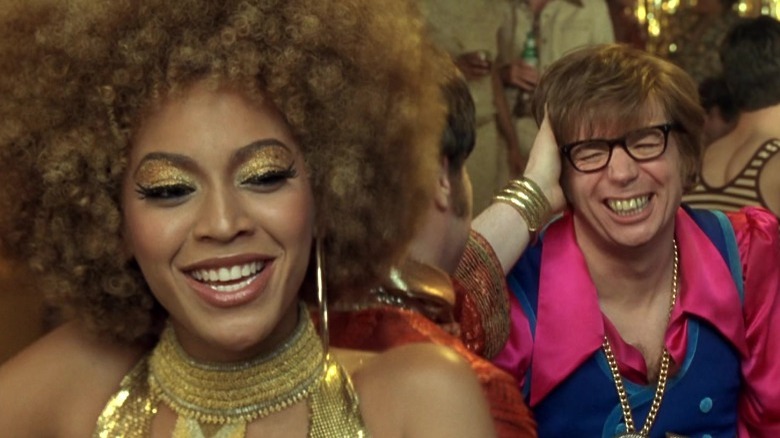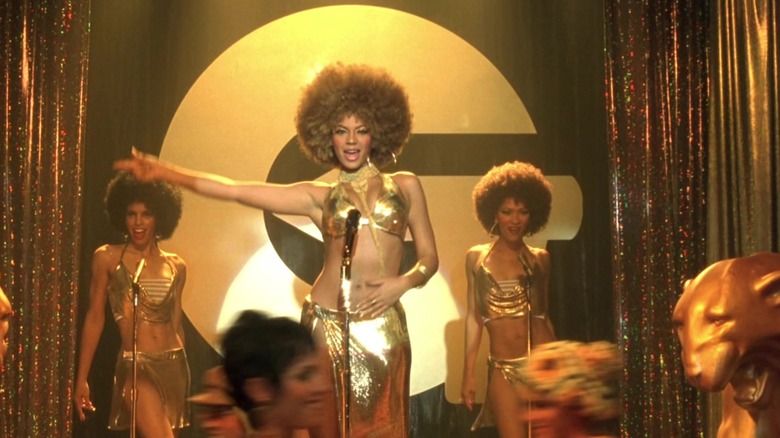Beyoncé Made Sure Austin Powers In Goldmember Marketing Accurately Represented Her Figure
Austin Powers movies are known for their extreme kitsch, and while it's hard to get away from the bright, unapologetic camp, the contrast between Beyonce's performance as Foxxy Cleopatra and her carefully curated modern persona is always a little bit shocking. Foxxy Cleopatra makes her debut in the trilogy's final film, "Austin Powers In Goldmember," where she works as a club singer and secret FBI agent. As the film's leading lady (and a popular celebrity), it's no surprise that Beyoncé was featured heavily in the movie's advertising. But despite all of Austin's not-so-vaguely sexist comments throughout the series, Beyoncé actually made it a point to ensure that her body was accurately represented in the promotional material — a small hit against the era's pervasive diet culture.
In an interview with Vulture, makeup artist Kate Biscoe recalls how Beyoncé was shown an earlier version of the poster, only to respond, "You made me too skinny. It's not me" and suggest that the poster should have an hourglass figure. Fortunately, the crew member agreed to make her depiction more realistic and even remarked that it was the first time an actress had asked to look bigger — a sign of how impressive the request was.
Foxxy Cleopatra as early body positivity
While it's easy to take body positivity for granted nowadays, Beyonce's insistence upon the posters accurately reflecting her figure was even more significant when you realize that the movie was released in 2002 — a time infamous for its harsh diet culture. According to an article published the next year by Paediatr Child Health, a wide variety of girls and young women (ranging from grade 5 to undergraduate students) all felt greater pressure to start dieting when they were exposed to media.
And while we might be used to the confident 40-year-old Beyoncé of today, the Beyoncé of 2003 would have been in her early 20s — the same age as some of those women. Not to mention the fact that it's one thing to diet so that you look skinny throughout your daily life, but it's much more difficult to feel confident when your figure will be plastered on posters all around the world.
While it could've been easy to simply embrace the skinnier look, Beyoncé's insistence upon proper representation may have actually helped minimize the harmful super-skinny norm that other movies perpetuated. Sure, her figure is still unattainable for the average viewer, but it's no secret that increased representation can help eliminate harmful messages. By pushing for a larger, more accurate depiction of her body, Beyoncé was able to show girls and young women of the time that they don't need to be overly skinny — a message that's just as relevant today.

